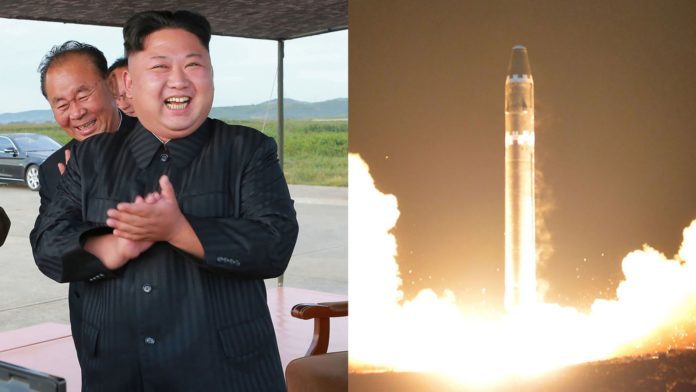The article was originally published by The Korea Times.
James Clapper, a retired air force lieutenant general who served two tours in South Korea and then as President Barack Obama’s director of national intelligence from 2010 to 2017, has shocked a virtual forum by asking, rhetorically, if “our policy of demanding North Korean denuclearization is going to work.”
The U.S. has been “imposing sanctions forever,” said Clapper, who directed intelligence for the U.S. Forces Korea Command for two years in the 1980s and visited Pyongyang eight years ago to bring home two Americans who had been imprisoned there. “Our approach,” he argued, “has not been successful.”
Washington, he said, should accept the reality that North Korea should indeed be recognized as one of nine nuclear powers. To which he added, “Of course we should allow a North Korean presence in Washington” ― a liaison office in exchange for a similar U.S. office in Pyongyang.
Clapper’s comments were largely at odds with others at the forum, conducted by the Institute for Corean-American Studies (ICAS) based in Philadelphia. An immediate question was whether facing the fact that North Korea will never give up its nuclear program would encourage others in the region also to “go nuclear.” Both South Korea and Japan are widely believed to be ready to produce nuclear warheads any time they have a pretext or rationalization for doing so and Taiwan is also getting close to that distinction.
I also asked him whether Japanese conservatives, if North Korea were recognized as a member of the nuclear club, would get their way and manage to throw out Article 9 of Japan’s post-war “peace constitution” banning Japanese forces from waging war overseas. He acknowledged the danger of “letting that genie out of the bottle,” as I put it in my question, recognizing the potential for Japan’s renaissance as a great military power.
For sure, adding all these countries to the nuclear club would mean that Northeast Asia has five of the nine nuclear powers when you include Russia, a nuclear menace from the Soviet days with more warheads than the United States, and China, far behind Russia in numbers of nukes but far head of North Korea. Then, when you add all the warheads that U.S. forces keep on planes, ships and bases in the Western Pacific, from Hawaii to Japan and Guam, and you can imagine a nuclear war erupting in which hundreds of millions would die.
Clapper, to be sure, envisions quite a different scenario. “North Korea wants badly to be recognized as a member of the nuclear club,” he said. Now the question is, “How could we induce the North Koreans to behave responsibly?” He called “strategic patience,” a term that came into vogue during Obama’s presidency and now seems to be President Biden’s policy too, “a euphemism for exasperation.”
To questions suggesting his views might be a little unrealistic given the total lack of communication between North Korea and either the U.S. or South Korea, Clapper said the current approach toward North Korea “is not succeeding.” He insisted he was “trying to be pragmatic here” by asking, “What can we do to better influence North Korea’s behavior?”
Clapper had no ready answer, though, when I asked where or how to begin as long as Kim Jong-un is not responding to messages from either the U.S. or South Korea and the relationships formed in his summits with the former presidents of South Korea and the U.S., Moon Jae-in and Donald Trump, had evaporated. He said he simply did not know.
Nor was there any guarantee that North Korea, if the U.S. said, “OK, we now recognize you as a member of the nuclear club,” would say or do a thing in return. It’s far from certain North Korea would rejoin the nuclear non-proliferation treaty, from which it withdrew in January 2003. Undoubtedly the North would stick by familiar demands for removal of U.S. and U.N. sanctions and reiterate calls for withdrawal of all American troops and bases from South Korea.
“Declaring our policy is denuclearization and we’re not going to do much unless you do that is a non-starter,” Clapper observed. Fair enough, but what’s going to work, short of the U.S. withdrawing from South Korea and leaving the South to the mercies not only of the North but also of China and maybe Russia?
Maybe there are no solutions other than shoring up defenses and hoping the South can go on living in peace and prosperity.
Donald Kirk (www.donaldkirk.com) writes from Seoul as well as Washington.


